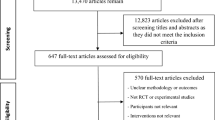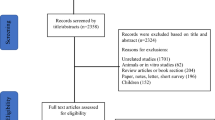Abstract
The burden of comorbidities post-lung transplant is well documented; however, there remains a paucity of studies on insomnia in this population. Sleep disturbance has been well documented in other organ transplants. We evaluated the prevalence and potential associations of insomnia in a lung transplant cohort. A cross-sectional study of lung transplant patients attending routine follow-up at a lung transplant clinic was conducted. Participants completed the Insomnia Severity Index (ISI) and Hospital Anxiety and Depression Scale (HADS). Insomnia was defined as ISI score ≥ 15. Logistic regression analysis was used to study the relationship with variables including demographics, transplant and immunosuppression characteristics, and HADS scores for anxiety (HADS-A) and depression (HADS-D). Eighty-one patients were recruited (age 57 ± 13 years; 35 women). Median time since transplantation was 350 days (128–1228). The prevalence of insomnia was 32% (26 of 81). Insomnia was more common amongst women [odds ratio (OR) 5.0, p = 0.002], and associated with HADS-A (OR 1.24, p = 0.004) and HADS-D scores (OR 1.23, p = 0.01). These associations remained significant on multivariable analysis. There was no association with age, lung function, time since transplant, prednisolone dose or Tacrolimus level. We found a high prevalence of insomnia in lung transplant recipients at our institution. This is similar to the results of previous studies on insomnia and sleep quality in lung transplant recipients. Insomnia is potentially associated with female sex, anxiety and depression. Future studies should elucidate the incidence and predictors of insomnia to guide screening and diagnosis.

Similar content being viewed by others
Abbreviations
- 6MWD:
-
Six-minute walk distance
- BMI:
-
Body mass index
- FEV1:
-
Forced expiratory volume in 1 s
- FVC:
-
Forced vital capacity
- HADS:
-
Hospital anxiety and depression scale
- ISI:
-
Insomnia Severity Index
- OR:
-
Odds ratio
- SD:
-
Standard deviation
- SDB:
-
Sleep-disordered breathing
References
Yusen RD, Edwards LB, Dipchand AI, Goldfarb SB, Kucheryavaya AY, Levvey BJ, Lund LH, Meiser B, Rossano JW, Stehlik J. The registry of the International Society for Heart and Lung Transplantation: thirty-third adult lung and heart–lung transplant report—2016; focus theme: primary diagnostic indications for transplant. J Heart Lung Transpl. 2016;35:1170–84.
Dew MA, DiMartini AF, DeVito Dabbs AJ, Fox KR, Myaskovsky L, Posluszny DM, Switzer GE, Zomak RA, Kormos RL, Toyoda Y. Onset and risk factors for anxiety and depression during the first 2 years after lung transplantation. Gen Hosp Psychiatry. 2012;34:127–38.
Curtis JR, Westfall AO, Allison J, Bijlsma JW, Freeman A, George V, Kovac SH, Spettell CM, Saag KG. Population-based assessment of adverse events associated with long-term glucocorticoid use. Arthritis Rheum. 2006;55:420–6.
Fung JJ, Alessiani M, Abu-Elmagd K, Todo S, Shapiro R, Tzakis A, Van Thiel D, Armitage J, Jain A, McCauley J, et al. Adverse effects associated with the use of FK 506. Transpl Proc. 1991;23:3105–8.
Morin C, Fardet L. Systemic glucocorticoid therapy: risk factors for reported adverse events and beliefs about the drug. A cross-sectional online survey of 820 patients. Clin Rheumatol. 2015;34:2119–26.
Fatigati A, Alrawashdeh M, Zaldonis J, Dabbs AD. Patterns and predictors of sleep quality within the first year after lung transplantation. Prog Transpl. 2016;26:62–9.
Voth ARH, Manas PDB, De Gafas ADP, de Atauri Rodriguez MJ. Sleep-related breathing disorders and lung transplantation. Transplantation. 2015;99:e127–31.
Menninga NJ, Rohde KA, Schlei ZW, Katers KM, Weber AK, Brokhof MM, Hawes DS, Radford KL, Francois ML, Cornwell RD, et al. Restless legs syndrome following lung transplantation: prevalence and relationship with tacrolimus exposure. Prog Transpl. 2016;26:149–56.
Minai OA, Golish JA, Yataco JC, Budev MM, Blazey H, Giannini C. Restless legs syndrome in lung transplant recipients. J Heart Lung Transpl. 2007;26:24–9.
Naraine VS, Bradley TD, Singer LG. Prevalence of sleep disordered breathing in lung transplant recipients. J Clin Sleep Med. 2009;5:441–7.
Rohde KA, Schlei ZW, Katers KM, Weber AK, Brokhof MM, Hawes DS, Radford KL, Francois ML, Menninga NJ, Cornwell R, et al. Insomnia and relationship with immunosuppressant therapy after lung transplantation. Prog Transpl. 2017;27:167–74.
Brekke FB, Waldum-Grevbo B, von der Lippe N, Os I. The effect of renal transplantation on quality of sleep in former dialysis patients. Transpl Int. 2017;30:49–56.
Sabbatini M, Crispo A, Pisani A, Gallo R, Cianciaruso B, Fuiano G, Federico S, Andreucci VE. Sleep quality in renal transplant patients: a never investigated problem. Nephrol Dial Transpl. 2005;20:194–8.
Burkhalter H, Brunner DP, Wirz-Justice A, Cajochen C, Weaver TE, Steiger J, Fehr T, Venzin RM, De Geest S. Self-reported sleep disturbances in renal transplant recipients. BMC Nephrol. 2013;14:220.
Liaveri PG, Dikeos D, Ilias I, Lygkoni EP, Boletis IN, Skalioti C, Paparrigopoulos T. Quality of sleep in renal transplant recipients and patients on hemodialysis. J Psychosom Res. 2017;93:96–101.
Burkhalter H, Denhaerynck K, Huynh-Do U, Binet I, Hadaya K, De Geest S. Change of sleep quality from pre- to 3 years post-solid organ transplantation: the Swiss transplant cohort study. PLoS One. 2017;12:e0185036.
Reilly-Spong M, Park T, Gross CR. Poor sleep in organ transplant recipients: self-reports and actigraphy. Clin Transpl. 2013;27:901–13.
Bastien CH, Vallières A, Morin CM. Validation of the Insomnia Severity Index as an outcome measure for insomnia research. Sleep Med. 2001;2:297–307.
Gagnon C, Belanger L, Ivers H, Morin CM. Validation of the insomnia severity index in primary care. J Am Board Fam Med. 2013;26:701–10.
Morin CM, Belleville G, Belanger L, Ivers H. The insomnia severity index: psychometric indicators to detect insomnia cases and evaluate treatment response. Sleep. 2011;34:601–8.
Savard MH, Savard J, Simard S, Ivers H. Empirical validation of the insomnia severity index in cancer patients. Psychooncology. 2005;14:429–41.
Zigmond AS, Snaith RP. The hospital anxiety and depression scale. Acta Psychiatr Scand. 1983;67:361–70.
Bjelland I, Dahl AA, Haug TT, Neckelmann D. The validity of the hospital anxiety and depression scale. An updated literature review. J Psychosom Res. 2002;52:69–77.
Foley DJ, Monjan AA, Brown SL, Simonsick EM, Wallace RB, Blazer DG. Sleep complaints among elderly persons: an epidemiologic study of three communities. Sleep. 1995;18:425–32.
Buysse DJ, Angst J, Gamma A, Ajdacic V, Eich D, Rossler W. Prevalence, course, and comorbidity of insomnia and depression in young adults. Sleep. 2008;31:473–80.
Mellinger GD, Balter MB, Uhlenhuth EH. Insomnia and its treatment. Prevalence and correlates. Arch Gen Psychiatry. 1985;42:225–32.
Alvaro PK, Roberts RM, Harris JK. A systematic review assessing bidirectionality between sleep disturbances, anxiety, and depression. Sleep. 2013;36:1059–68.
Breslau N, Roth T, Rosenthal L, Andreski P. Sleep disturbance and psychiatric disorders: a longitudinal epidemiological study of young adults. Biol Psychiatry. 1996;39:411–8.
Fava GA, Grandi S, Canestrari R, Molnar G. Prodromal symptoms in primary major depressive disorder. J Affect Disord. 1990;19:149–52.
Tang NK, McBeth J, Jordan KP, Blagojevic-Bucknall M, Croft P, Wilkie R. Impact of musculoskeletal pain on insomnia onset: a prospective cohort study. Rheumatology (Oxford). 2015;54:248–56.
Fernandez-Mendoza J, Vgontzas AN, Liao D, Shaffer ML, Vela-Bueno A, Basta M, Bixler EO. Insomnia with objective short sleep duration and incident hypertension: the Penn State Cohort. Hypertension. 2012;60:929–35.
Vgontzas AN, Liao D, Bixler EO, Chrousos GP, Vela-Bueno A. Insomnia with objective short sleep duration is associated with a high risk for hypertension. Sleep. 2009;32:491–7.
Vgontzas AN, Liao D, Pejovic S, Calhoun S, Karataraki M, Bixler EO. Insomnia with objective short sleep duration is associated with type 2 diabetes: a population-based study. Diabetes Care. 2009;32:1980–5.
Smith PJ, Blumenthal JA, Trulock EP, Freedland KE, Carney RM, Davis RD, Hoffman BM, Palmer SM. Psychosocial predictors of mortality following lung transplantation. Am J Transpl. 2016;16:271–7.
Ohayon MM. Severe hot flashes are associated with chronic insomnia. Arch Intern Med. 2006;166:1262–8.
Ohayon MM. Epidemiology of insomnia: what we know and what we still need to learn. Sleep Med Rev. 2002;6:97–111.
Ohayon MM, Roth T. Place of chronic insomnia in the course of depressive and anxiety disorders. J Psychiatr Res. 2003;37:9–15.
Taylor DJ, Lichstein KL, Durrence HH, Reidel BW, Bush AJ. Epidemiology of insomnia, depression, and anxiety. Sleep. 2005;28:1457–64.
Morphy H, Dunn KM, Lewis M, Boardman HF, Croft PR. Epidemiology of insomnia: a longitudinal study in a UK population. Sleep. 2007;30:274–80.
Kaneita Y, Yokoyama E, Harano S, Tamaki T, Suzuki H, Munezawa T, Nakajima H, Asai T, Ohida T. Associations between sleep disturbance and mental health status: a longitudinal study of Japanese junior high school students. Sleep Med. 2009;10:780–6.
Cohen DG, Christie JD, Anderson BJ, Diamond JM, Judy RP, Shah RJ, Cantu E, Bellamy SL, Blumenthal NP, Demissie E, et al. Cognitive function, mental health, and health-related quality of life after lung transplantation. Ann Am Thorac Soc. 2014;11:522–30.
Smith PJ, Blumenthal JA, Carney RM, Freedland KE, O’Hayer CVF, Trulock EP, Martinu T, Schwartz TA, Hoffman BM, Koch GG, et al. Neurobehavioral functioning and survival following lung transplantation. Chest. 2014;145:604–11.
George CF, Bayliff CD. Management of insomnia in patients with chronic obstructive pulmonary disease. Drugs. 2003;63:379–87.
Geiger-Brown JM, Rogers VE, Liu W, Ludeman EM, Downton KD, Diaz-Abad M. Cognitive behavioral therapy in persons with comorbid insomnia: a meta-analysis. Sleep Med Rev. 2015;23:54–67.
Trauer JM, Qian MY, Doyle JS, Rajaratnam SM, Cunnington D. Cognitive behavioral therapy for chronic insomnia: a systematic review and meta-analysis. Ann Intern Med. 2015;163:191–204.
Wu JQ, Appleman ER, Salazar RD, Ong JC. Cognitive behavioral therapy for insomnia comorbid with psychiatric and medical conditions: a meta-analysis. JAMA Intern Med. 2015;175:1461–72.
Sateia MJ, Buysse DJ, Krystal AD, Neubauer DN, Heald JL. Clinical practice guideline for the pharmacologic treatment of chronic insomnia in adults: an American Academy of Sleep Medicine clinical practice guideline. J Clin Sleep Med. 2017;13:307–49.
Acknowledgements
The authors wish to thank the staff at The Alfred Hospital lung transplant clinic for their invaluable assistance in conducting this study.
Funding
None.
Author information
Authors and Affiliations
Corresponding author
Ethics declarations
Conflict of interest
The authors declare that they have no conflict of interest.
Ethical approval
The Alfred Hospital Ethics Committee—approval 506/16.
Human and animal rights statement
Research involving human participants.
Informed consent
Informed consent was obtained from all individual participants included in the study.
Additional information
Publisher's Note
Springer Nature remains neutral with regard to jurisdictional claims in published maps and institutional affiliations.
Electronic supplementary material
Below is the link to the electronic supplementary material.
Rights and permissions
About this article
Cite this article
Yo, S.W., Fuller, L.M., Martin, C. et al. Prevalence and associations of insomnia in lung transplant recipients. Sleep Biol. Rhythms 17, 389–395 (2019). https://doi.org/10.1007/s41105-019-00223-2
Received:
Accepted:
Published:
Issue Date:
DOI: https://doi.org/10.1007/s41105-019-00223-2




